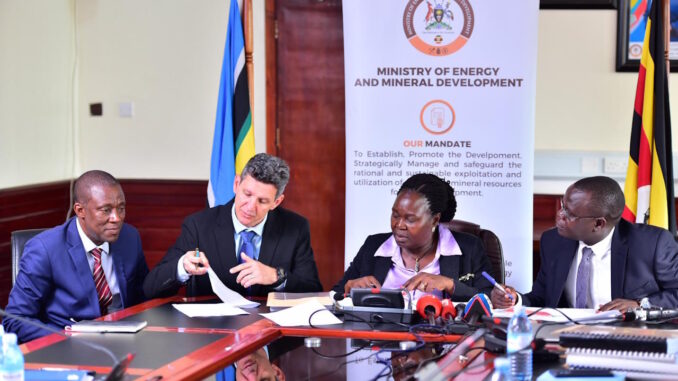
Ionic Rare Earths Limited said Wednesday that it has been granted a 21-year mining licence by the Ugandan government for the central tenement of its Makuutu heavy rare earths project, paving the way for a final investment decision later this year and production in 2026.
The tenement covers 43.8 square kilometres of the project’s 298 square kilometres. The Australian company added that it has received approval from the Directorate of Geological Survey and Mines (DGSM) to renew its exploration licence for the project’s easternmost tenement, which covers 60.3 square kilometres.
The Makuutu project contains what Ionic says are the world’s largest and most advanced ionic adsorption clay rare earth deposits. The project consists of six tenements — including the mining lease — three of which are currently under exploration licences and two of which are under retention licences. It is located in the eastern districts of Bugweri, Mayuge, and Bugiri, 40 kilometres from Jinja town.
The project’s rare earth element resource is estimated at 532 million tonnes at 640 parts per million.
Ionic said it had secured land access agreements for 95 per cent of the area under the mining lease and completed a DGSM-led verification process. It added that it was working with “local project stakeholders and the government to resolve the 5 per cent of unsecured land access agreements.” The company is required to compensate landowners before it can start mining.
Tim Harrison, managing director of Ionic Rare Earths, said:
“The formal awarding of the mining licence at Makuutu to Rwenzori [a subsidiary of Ionic, which owns the Makuutu project] enables discussions with potential strategic and supply chain partners to progress to the next stage to bring Makuutu and a new supply of magnet and heavy rare earths to market.
“With this award, and discussions underway with potential partners, the project is aiming for final investment decision later this year, and first product to customers in early 2026.
“Progress continues to be made at Makuutu’s demonstration plant, which will also be critical in de-risking the commercialisation of the project through the production of value added, mixed rare earth carbonate (MREC) for our partners to qualify and validate.
“It is an important step forward for Ionic Rare Earths in mining, refining, and recycling the heavy rare earths critical for the energy transition, advanced manufacturing, and defence.
“With the formal award of the mining licence in Uganda, it now reinforces the Makuutu Heavy Rare Earth Project as one of the world’s largest and most advanced development-ready heavy rare earth element assets, and we look forward to commissioning our demonstration plant at Makuutu.”
Rare earths are a group of 17 elements that are commonly found in the earth, but are difficult to extract and process economically outside of China. They are crucial to the production of over 200 products, including high-tech consumer goods such as mobile phones, hard drives, electric and hybrid vehicles, and flat-screen monitors. They also have military and defence applications, such as in lasers, electronic displays, radar, and sonar systems.
Copyright African Business News
